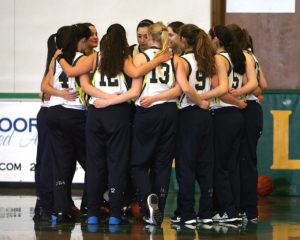Preparing for Tournament Play: Team Cohesion
A Tournament for any team provides a number of great opportunities to promote team cohesion and unity. A tournament if managed well provides a stable and consistent environment that allows a coach and their staff to control more of the variables then at any other time while in training. Within this setting, time can be invested to promote team cohesion, or if poorly managed pull the group apart and isolate members.
Accommodation
The standard of accommodation available will be affected largely by the finances available. If resources are adequate then the ideal scenario is to have self-contained units.
Over an extended period of tournament play self-contained units offer access to the resources necessary for the day-to-day operation of a large group of people. Ongoing access to cooking, washing and entertainment areas provide many options for players, coaches and management staff to work with.
Meals
Eating will become one of the times that all group members come together outside of activities related to the tournament play specifically. Everyone involved with the team will have their own routine that they follow when at home. While on tour though, meal times can be a valuable opportunity for staff and players to make connections through general discussions about interests other than sport.
Eating together and making these times a lively discussion around a range of topics will help players and staff discover the different personalities among the group of athletes that are a part of the team.
Using set meal times where all team members must attend will help bring everyone together in a consistent manner. Those rooms or individuals who are late can be allocated duties such as set-up or clean-up.
Meetings

While at a tournament there will be a variety of meetings that have to take place. These will include pre-game, post-game and individual/small group player meetings. Establishing expectations around these meetings will help initially in setting standards that players can commit to.
Pre-game meetings will be for strategising the game plan so team members understand their role and purpose within the bigger plan for the team. Within the overall daily schedule having a fixed time before games when meetings are held will again aid in having all individuals involved with a team meeting the expectations of the coaching staff in reaching preparedness for a game.
Post-game meetings are for reflection on the immediate past game and the team’s performance compared to the game plan.
Individual or small group meetings will be to help people understand what is needed specifically from them. Where they need to focus their attention, and concentrate their focus to improve their performance over the course of the tournament.
After any performance, it is a given that the team will come together to discuss and debrief what happened in a game. Following this though individual meetings can be scheduled so more specific feedback can be provided. These individual or small group meetings can be organised in a number of ways such as speaking with starters/bench, playing positions or perimeter/interior players.
Goal Setting
Short and long-term goals will be part of any team’s activities. These should be individualised for the best possible outcomes. Establishing game by game goals will allow players to focus on aspects of the game plan that they can control and be held accountable to.
The develop game goals is very important to allow players to feel as though they are making a contribution outside of the more high-profile statistics such as minutes, points and rebounds. All members within the team can have their own individualised goals that help them focus on what is determined by the staff as important to the team and the individual players ever improving performance. An example of this type of goal for junior players might be using the appropriate hand when laying the ball up. For a senior player an individual goal might be focused on a tactical read that triggers a special offensive/defensive action.
Longer term goals will help in having significant targets that are important to an individual athlete’s development within the context of their playing career, as well as team driven goals that are about the team’s overall direction.
Recovery
Recovery sessions are another event where the members of team are brought together. Having members of the team responsible for the direction of set recovery session routines can be valuable in providing leadership opportunities as well as promote team cohesion.
Recovery sessions can be varied in focus and developing a set session format that individual players can learn and be responsible for delivering to the rest of the team. Examples of different session may include static or dynamic stretching, yoga, pilates or pool recovery sessions
Within all the different aspects of tournament activities described above team cohesion can be a focus. It is not a difficult task to have this theme integrated. What can be difficult is keeping everyone on task to make sure they are being a role model for this theme. These activities can just as easily happen and no benefit be derived. However, by voicing team cohesion as a core characteristic then the attention of players and team staff can deliberately ensure this is upheld.


A good article-about the ways to build team cohesion. We strongly agree with you on the importance of eating meals together. Meal times are ideal for group members to build personal rapport with each other, and discuss topics beyond the game. Though we agree that setting goals is important before playing, pre-game meetings should be kept to the minimum, to avoid putting unnecessary pressure on the kids.